Filter by
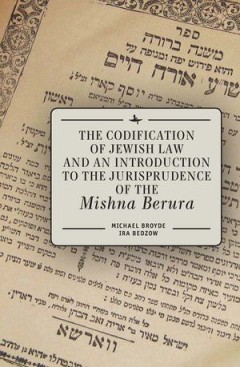
The Codification of Jewish Law and an Introduction to the Jurisprudence of th…
The Mishna Berura is, without a doubt, Rabbi Israel Meir Kagan's greatest and most complex contribution to the canon of Orthodox Jewish Law; it is a singular work that synthesizes Jewish traditions, laws, and mores into a practical halakhic guide to daily religious life. For all of his traditionalism, Rabbi Kagan was an iconoclast, and the Mishna Berura broke from many of the traditional approa…
- Edition
- -
- ISBN/ISSN
- 9781618112781
- Collation
- -
- Series Title
- -
- Call Number
- -
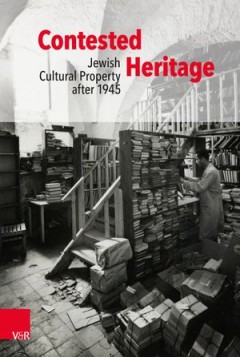
Contested Heritage : Jewish Cultural Property after 1945
In the wake of the Nazi regime’s policies, European Jewish cultural property was dispersed, dislocated, and destroyed. Books, manuscripts, and artworks were either taken by their fleeing owners and were transferred to different places worldwide, or they fell prey to systematic looting and destruction under German occupation. Until today, a significant amount of items can be found in private a…
- Edition
- -
- ISBN/ISSN
- 3666310834
- Collation
- -
- Series Title
- -
- Call Number
- -
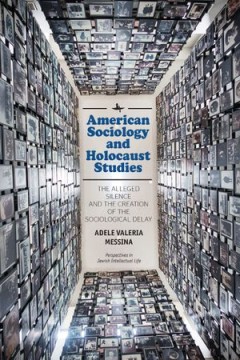
American Sociology and Holocaust Studies The Alleged Silence and the Creatio…
Filled with new elements that challenge common scholarly theses, this book acquaints the reader with the “Jewish problem” of sociology and provides what this academic discipline urgently needs: a one-volume history of the Sociology of the Holocaust. The story of why and how sociologists as well as the schools of sociological thought came to confront the Holocaust has never been entirely tol…
- Edition
- -
- ISBN/ISSN
- 9781644696637
- Collation
- -
- Series Title
- -
- Call Number
- -

Italian Jewry in the Early Modern Era Essays in Intellectual History
Between the years 1550 and 1650, Italy's Jewish intellectuals created a unique and enduring synthesis of the great literary and philosophical heritage of the Andalusian Jews and the Renaissance`s renewal of perspective. While remaining faithful to the beliefs, behaviors, and language of their tradition, Italian Jews proved themselves open to a rapidly evolving world of great richness. The crisi…
- Edition
- -
- ISBN/ISSN
- 9781618112088
- Collation
- -
- Series Title
- -
- Call Number
- -
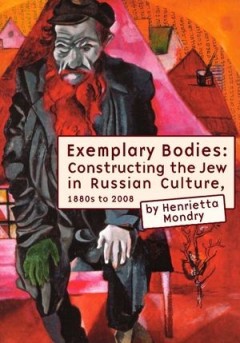
Exemplary Bodies Constructing the Jew in Russian Culture, 1880s to 2008
Exemplary Bodies: Constructing the Jew in Russian Culture, 1880s to 2008 explores the construction of the Jew’s physical and ontological body in Russian culture as represented in literature, film, and non-literary texts from the 1880s to the present. With the rise of the dominance of biological and racialist discourse in the 1880s, the depiction of Jewish characters in Russian literary and cu…
- Edition
- -
- ISBN/ISSN
- 9781934843390
- Collation
- -
- Series Title
- -
- Call Number
- -
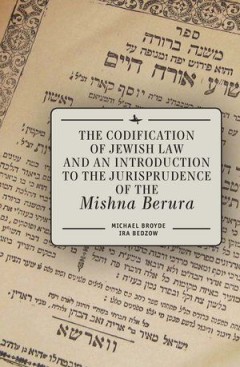
The Believer and the Modern Study of the Bible
The Mishna Berura is, without a doubt, Rabbi Israel Meir Kagan's greatest and most complex contribution to the canon of Orthodox Jewish Law; it is a singular work that synthesizes Jewish traditions, laws, and mores into a practical halakhic guide to daily religious life. For all of his traditionalism, Rabbi Kagan was an iconoclast, and the Mishna Berura broke from many of the traditional approa…
- Edition
- -
- ISBN/ISSN
- 9781618112781
- Collation
- -
- Series Title
- -
- Call Number
- -
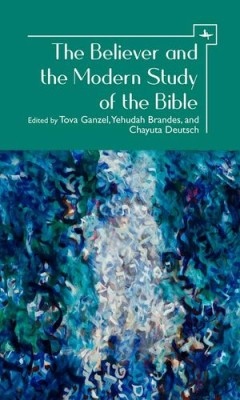
The Believer and the Modern Study of the Bible
The essays in this volume address the conundrum of how Jewish believers in the divine character of the Sinaitic revelation confront the essential questions raised by academic biblical studies. The first part is an anthology of rabbinic sources, from the medieval period to the present, treating questions that reflect a critical awareness of the Bible. The second part is a series of twenty-one es…
- Edition
- -
- ISBN/ISSN
- 9781618119513
- Collation
- -
- Series Title
- -
- Call Number
- -
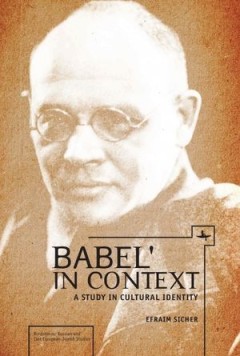
Babel' In Context A Study in Cultural Identity
Isaak Babel (1894–1940) is arguably one of the greatest modern short story writers of the early twentieth century. Yet his life and work are shrouded in the mystery of who Babel was—an Odessa Jew who wrote in Russian, who came from one of the most vibrant centers of east European Jewish culture and all his life loved Yiddish and the stories of Sholom Aleichem. This is the first book in Engl…
- Edition
- -
- ISBN/ISSN
- 9781618118530
- Collation
- -
- Series Title
- -
- Call Number
- -
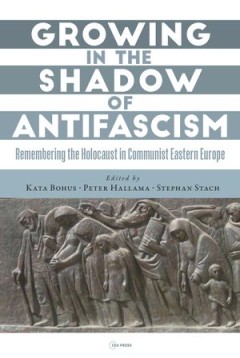
Growing in the Shadow of Antifascism: Remembering the Holocaust in State-Soci…
Reined into the service of the Cold War confrontation, antifascist ideology overshadowed the narrative about the Holocaust in the communist states of Eastern Europe. This led to the Western notion that in the Soviet Bloc there was a systematic suppression of the memory of the mass murder of European Jews. Going beyond disputing the mistaken opposition between “communist falsification” of hi…
- Edition
- -
- ISBN/ISSN
- 9789633864364
- Collation
- -
- Series Title
- -
- Call Number
- 900 GRO g
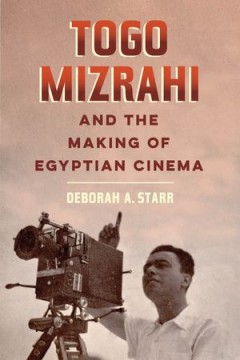
Togo Mizrahi and the Making of Egyptian Cinema
A free open access ebook is available upon publication. Learn more at www.luminosoa.org. In this book, Deborah A. Starr recuperates the work of Togo Mizrahi, a pioneer of Egyptian cinema. Mizrahi, an Egyptian Jew with Italian nationality, established himself as a prolific director of popular comedies and musicals in the 1930s and 1940s. As a studio owner and producer, Mizrahi promoted the idea …
- Edition
- -
- ISBN/ISSN
- 9780520976122
- Collation
- -
- Series Title
- -
- Call Number
- 777 STA t
 Computer Science, Information & General Works
Computer Science, Information & General Works  Philosophy & Psychology
Philosophy & Psychology  Religion
Religion  Social Sciences
Social Sciences  Language
Language  Pure Science
Pure Science  Applied Sciences
Applied Sciences  Art & Recreation
Art & Recreation  Literature
Literature  History & Geography
History & Geography